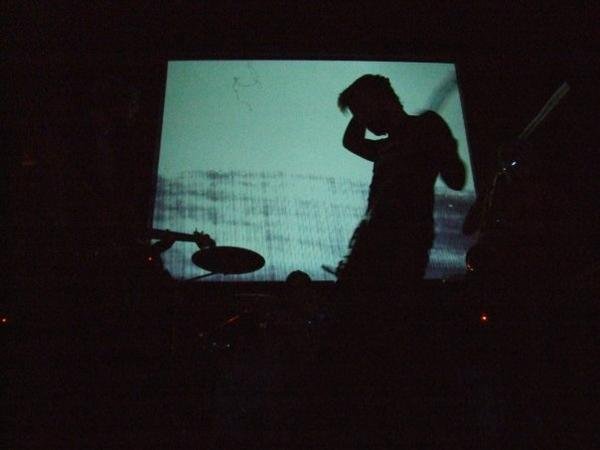
O post-rock começou de forma tímida, caracterizado por bandas que não se encaixavam no formato tradicional nem da música pop e indie, nem do que se normalmente encontrava no gênero instrumental. Fundindo rock, jazz, alternativo, progressivo, eletrônico, experimentalismo, e uma porrada de outras coisas, bandas como Slint, Mogwai, Sigur Rós e Godspeed! You Black Emperor se tornaram algumas das referências máximas do estilo.
Como sempre acontece na música pop, a partir daí começaram a surgir centenas de bandas com propostas semelhantes mas pouco talento. Fórmulas repetidas a exaustão e a construção dos clichês reproduzidos incansavelmente começaram a tornar o post rock realmente chato. O These Monsters, da Inglaterra, vai na contra-mão dessa galhofa toda.
O guitarrista Sam reconhece o problema e não perdoa: “Há tantas bandas de post rock que fazem a mesma coisa que acabam se tornando MUITO aborrecidas e previsíveis. Acho que uma das razões pra isso é que é realmente fácil pegar uma seqüência sonora qualquer e ir tocando de forma bem lenta, depois um pouco mais alto, subindo a intensidade gradativamente, depois explodindo num volume absurdo! Pra mim isso não é música, mas apenas um formato. Não há como você envolver ninguém numa experiência interessante se você apenas toca o mesmo riff um milhão de vezes.”
Basta ouvir qualquer uma das faixas do quarteto para se ter noção de como eles fogem do pré-fabricado: timbres esquisitos (no melhor sentido possível), complexidade natural (não gratuita), harmonias fluídas e melodias retorcidas e fundidas com uma massa sonora barulhenta, sim, mas com cérebro.
Os quatro, Sam (guitarra), Tommy (bateria), Ian (baixo) e Jonny (Sax), começaram como a maioria dos grupos começa: se conheceram na faculdade e unidos por interesses em comum, passaram a tocar, ensaiar…ver o que sairia daquilo. O resultado foi o primeiro EP, com 5 faixas, e muitos elogios na imprensa alternativa inglesa, além de shows bem recomendados no underground local.
Intensidade, emocional e técnica, que não se perde no barulho – proposital – gerado, mas traz o ouvinte para dentro do turbilhão: “Nós gostamos de fazer algo intenso, “noise music” que esperamos que outras pessoas gostem. Penso que nos nossos shows é importante para nós que, quem estiver assistindo, se sinta totalmente tomado e cercado pela música. Nossos concertos supostamente são para serem uma “parede sonora”. Se há partes da música que você não consegue compreender claramente, é porque é provável que esteja cercado por uma imensa onda de barulho.”
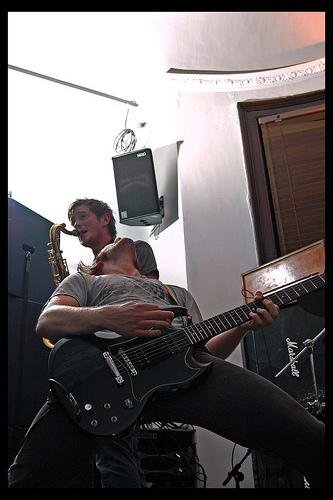
Sam conta que as primeiras composições surgiram enquanto ele assistia a série Twin Peaks, do cultuado diretor David Lynch. Aqueles retalhos de idéias foram posteriormente trabalhos pelo grupo, dando origem ao que podemos ouvir hoje.
Ele não nega que a internet, de fato, é importante para a divulgação, podendo levar o grupo a lugares inimagináveis (como esta entrevista, por exemplo). Mas o guitarrista tem cautela com todo o messianismo da web e as previsões de extinção total do modelo selo, divulgação, etc. Sam ressalta que “é preciso pensar como a internet tem ajudado estes selos independentes a surgir e se fortalecer, então não são apenas as bandas que podem explorar isto. Muitos selos alternativos basicamente são especialistas em fazer milhares de contatos e estabelecer uma “rede de prestígio” com eles, o que é bem importante. Se você conseguir trabalhar com um bom selo, isso sem dúvida irá ajudá-lo a ir muito além do que o que você conseguiria trabalhando sozinho pela internet.”
A rede, afinal, cumpre a sua vocação ao criar uma teia de contatos e possibilidades que fortalecem a coletividade, não produzindo “big star’s” em escala industrial. Se não é fácil conquistar reconhecimento dentro desse universo, com milhares de bandas surgindo a cada esquina virtual a todo momento, com a cultura do “next big thing” ainda sendo quase lei, há algo essencial que nunca vai mudar: a qualidade.
A opção do These Monsters pela música instrumental não foi premeditada, nem simboliza nada em especial. Sam explica que “na verdade, quando começamos, tínhamos um vocalista. Infelizmente bons vocalistas são muito difíceis de achar! Nós simplesmente fazemos música. Então ter ou não um vocal não faz diferença. Os shows são bastante intensos e (assim esperamos) excitantes para quem assiste. Não precisamos de um vocalista para entreter ninguém.”
Definitivamente, não precisam mesmo. Planos para um próximo álbum? “Nós não gravamos nada se não ficarmos satisfeitos com o resultado. Agora que a formação está mais definida, estamos compondo novas faixas que provavelmente iremos gravar em janeiro. Acho que será um novo EP com 4 ou 5 músicas. Vamos ver como as coisas acontecem para, quem sabe, depois arriscar um álbum completo. Pretendemos ir para os Estados Unidos gravar com o produtor Kurt Ballou, mas isso vai depender de muitas coisas, principalmente dinheiro!”
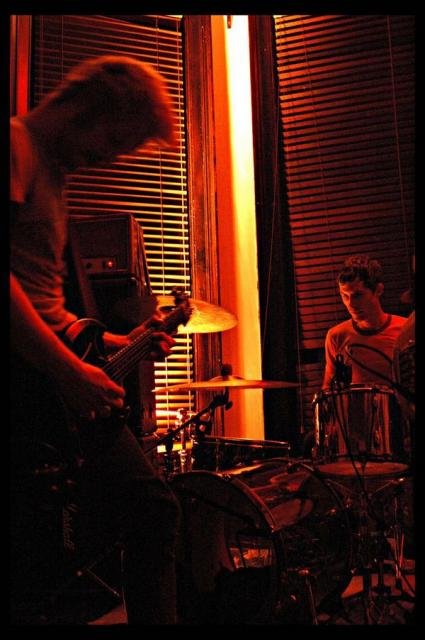
Há coisas que, não importa o quanto o mundo mude, ou quanto a forma de se fazer negócios se altere, a indústria da música se reinvente, sempre serão necessárias: o dinheiro, claro.
Um obstáculo que, para quem faz músicas instrumentais de 9 minutos com a habilidade e o talento de poucos, parece ser apenas mais um detalhe na vida do These Monsters. Ninguém disse que seria fácil.
Agradecimento aos membros Caio, Lynconl, Carlos e Bruno, da comunidade Post Rock N’ Roll, no Orkut, que enviaram suas contribuições.
English Version – Interview – These Monsters
The post-rock began timid, characterized by bands that do not fit in the format of traditional pop music and indie, and also normally found in the instrumental genre. Merging rock, jazz, alternative, progressive, electronic, experimental, and many other things, bands like Slint, Mogwai, Sigur Ros and Godspeed! You Black Emperor became some of the maximum references of style.
As ever in pop music, from there began to appear hundreds of bands with similar proposals but little talent. Formulas repeated to exhaustion and the construction of cliches played tirelessly began to make the post rock really boring. These Monsters, from England, goes hand-in against all these shot.
The guitarist Sam recognizes the problem and not forgiving: “There are so many post rock bands that are the same thing just becomes very boring and predictable. I think one reason for this is that it is really easy to get a sequence and any sound playing so well go slow, then a little higher, climbing the intensity gradually, after exploding in a volume absurd! For me this is not music, but only one format. There is nobody like you engage in an interesting experience if you just plays the same riff a million times. ”
Just listen to any of the tracks on the quartet to be aware of how they are fleeing from pre-fabricated: timbre weird (in the best sense possible), natural complexity (not free), fluid harmonies and melodies twisting and rendered with a loud noise, yes, but with brains.
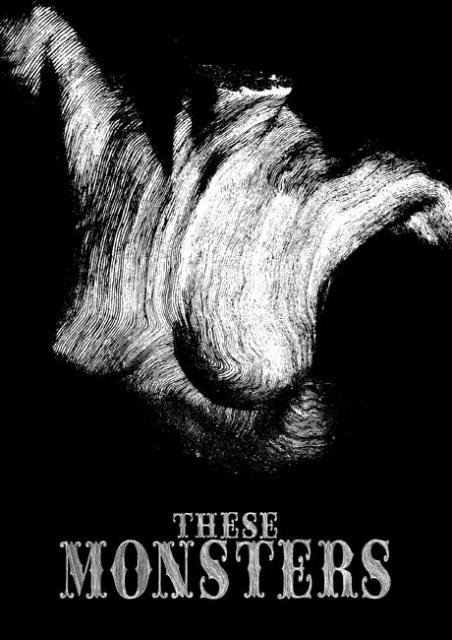
The four, Sam (guitar), Tommy (drums), Ian (bass) and Jonny (Sax), began like most groups begins: they met in college and united by common interests in, began to play, rehearse … which would see it. The result was the first EP, with 5 tracks, and much praise in the press alternative English as well as concerts and recommended the underground. Intensity, emotional and technical, that is not lost in the noise generated naturally, but brings the listener into the maelstrom: “We like to do something intense noise music, that we hope that other people enjoy. I think that in our concerts is important to us that, whoever is watching, you feel completely taken and surrounded by music. Our concerts are supposed to be wall of sound. If there are parts of music that you can not understand clearly, it is because it is likely to be surrounded by a huge wave of noise.”
Sam mind that the first compositions came while he watched the series Twin Peaks, from the worshiped director David Lynch. Those patchwork of ideas were later work by the group, giving rise to what we hear today.
He does not deny that the Internet, in fact, it is important to raise awareness and could lead the group to unimaginable places (like this interview, for example). But the guitarist has carefully with the entire web messianism and the projected total extinction of the model label, disclosure, etc. Sam points out that “we must consider how the Internet has helped these independent labels to emerge and get stronger, then not only are the bands that can exploit this. Many alternative labels are basically specialists in making thousands of contacts and establish a “network of prestige” with them, which is very important. If you can work with a good label, it certainly will help you go much further than what you would working alone the Internet.”
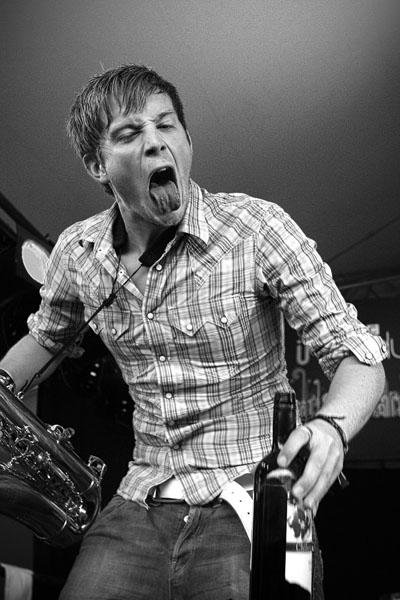
The network, after all, it fulfills its mission to create a web of contacts and opportunities that strengthen the community, producing no “big star’s” on an industrial scale. If it is not easy to gain recognition within this universe, with thousands of bands appearing at each corner to virtually every moment, with the culture of “next big thing” still being almost law, there is something essential that will never change: the quality.
The option These Monsters of the instrumental music was not premeditated, nor symbolize anything in particular. Sam explains that “when we started, we had a vocalist. Unfortunately good vocalists are very difficult to find! We just make music. So, have a vocalist or not, does not make a difference. The shows are very intense and (we hope) exciting for people watching. We do not need a singer to entertain anybody.”
Definitely, do not need it. Plans for a next album? “We do not record anything is not being satisfied with the result. Now that line-up is more defined, we are composing new songs that will probably record in January. I think it will be a new EP with 4 or 5 tracks. Let’s see how things to happen, who knows, after risking a full album. We want to go to the United States with the record producer Kurt Ballou, but that will depend on many things, especially money!”
There are things that, no matter how the world changes, or as a way to do business will change, the music industry reinvented itself, will always be needed: the money, of course.
One obstacle that, for those who make instrumental music, 9 minutes with the skill and talent of a few, seems to be just another detail in the life of These Monsters. Nobody said it would be easy.
![M.O.V.I.N [UP]](https://revistamovinup.com/wp-content/uploads/2019/03/Cultura-além-do-óbvio-Desde-2008.jpg)